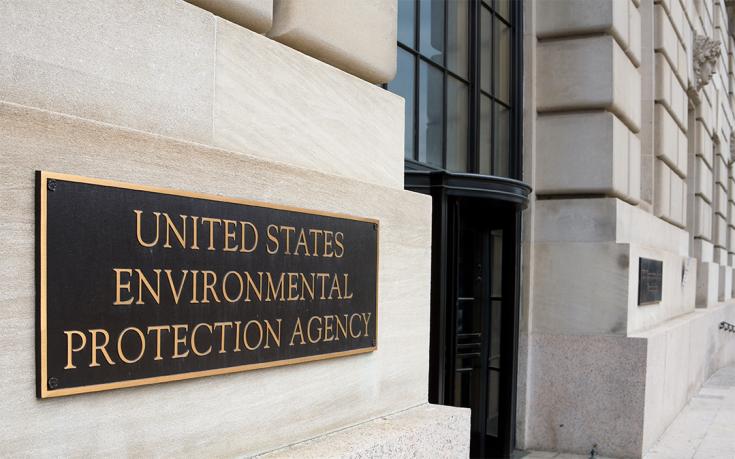 By Anna LaCombe
By Anna LaCombe
Trump may have been right when he told a room full of reporters that his administration is running like a finely-tuned machine. It is just not one that many Americans would recognize. The drama surrounding Trump’s cabinet appointments is reminiscent of a Soviet-style government where the “pay to play” is friendly relationships to Big Oil and appointees whose resumes are littered with fossil fuel industry companies and organizations.
The release of thousands of emails on February 21st between the new head of the Environmental Protection Agency (EPA), Scott Pruitt, and fossil fuel companies reveals a coordinated effort to block environmental regulations. As Oklahoma Attorney General, Pruitt sent letters drafted by energy companies to federal agencies in which he contested environmental standards. Perhaps most notable is his amicable relationship with Devon Energy.
It should come as no surprise that Trump would nominate a man who cozies up to Big Oil or whose attitude towards the agency he will head is best exemplified by his decision to sue the EPA 14 times. His statements about climate change would relegate him to the “hoax” end of the acceptance spectrum. Trump himself holds investments in pipeline construction projects. His failure to adequately divest from his holdings presents a serious conflict of interest when issuing executive orders that allow TransCanada to reapply for their cross-border permit for Keystone XL.
Trump’s conflicts of interests aside, his appointments also have to pass the scrutiny of senators who provide the important service of reviewing nominees to ensure that they will not be unduly influenced by outside forces. Many of the Trump administration’s appointments had serious conflicts of interest that warrant further investigation. Yet, as in the most recent example, senators would not allow Pruitt’s confirmation hearings to be rescheduled until after these emails were made public. Many in Congress have given their quiet acquiescence to a system of governance in which those who have intimate relationships with powerful entities will be rewarded with a government seat.
The telling information revealed in Pruitt’s correspondence with corporations like Devon Energy will likely be overshadowed as more of Pruitt’s emails will be disclosed on February 27th. He is one of many cabinet members who has unseemly ties to the industry that they are now regulating. Just weeks after Rick Perry’s term as Governor of Texas came to a close, he joined the board of Energy Transfer Partners–the company responsible for the Dakota Access Pipeline.
How can someone possibly oversee a government agency charged with regulating the industry that has given them their political careers, as in the case of Perry and Pruitt? Or represent the interests of the United States and the American people when he owes his great wealth and career to an extractive industry as is the case with Rex Tillerson.
Under Soviet-style communism, the party leadership tended a carefully curated list of individuals deemed trustworthy. This list would appear when there was a vacancy in a job posting or where a promotion was being considered. The class of people who benefited from the rampant kleptocracy that came to define the years behind the Iron Curtain is known as the Nomenklatura and it was a practice that pervaded all sectors, extending well beyond the corridors of government.
In the Nomenklatura system, there were those who were left behind for lack of connections or blatant refusal to partake. They were passed over for promotions resulting in stunted careers and fewer opportunities. We now have a class of people that has been sidelined by our current administration–government employees comprised of climate scientists and State Department career officials. And there are those that have chosen to resign from their posts due to their refusal to play by the new rules.
Already in a precarious position with regard to the press, the Trump administration is beginning to position itself in opposition to the American voters who have expressed their dissent. Dissatisfied citizens that have made their presence known by taking to the streets and town halls across America are labeled as paid protestors–a claim levied by the President and repeated last Wednesday by Press Secretary Sean Spicer. This echoes the propaganda of Stalinist-era communism in which dissenters were outside provocateurs or foreign enemy agents.
Even since the fall of communism, many countries in the former Soviet bloc have been plagued by scandals of corruption. This culture of crony capitalism had been a source of mockery and ridicule in the United States and many countries still bear the stigma of government corruption under communism. They are often portrayed as not-quite-democratic, compromised by the nepotism and backscratching of an earlier era. Yet, our democracy is poised to devolve into Soviet-style palm greasing should our congress allow this to go unchecked. All that it requires of our elected officials is to turn a blind eye. Instead of being in the business of running the country, the next four years may more closely resemble waves of purges and an uphill battle to weed out crony capitalism.
Sources:
http://fortune.com/2016/12/14/rick-perry-donald-trump-energy-dakota-pipeline/
http://www.prwatch.org/news/2017/02/13219/scott-pruitt-missing-emails
Anna LaCombe is an Energy Policy and Communications Intern at the Sierra Club North Star Chapter